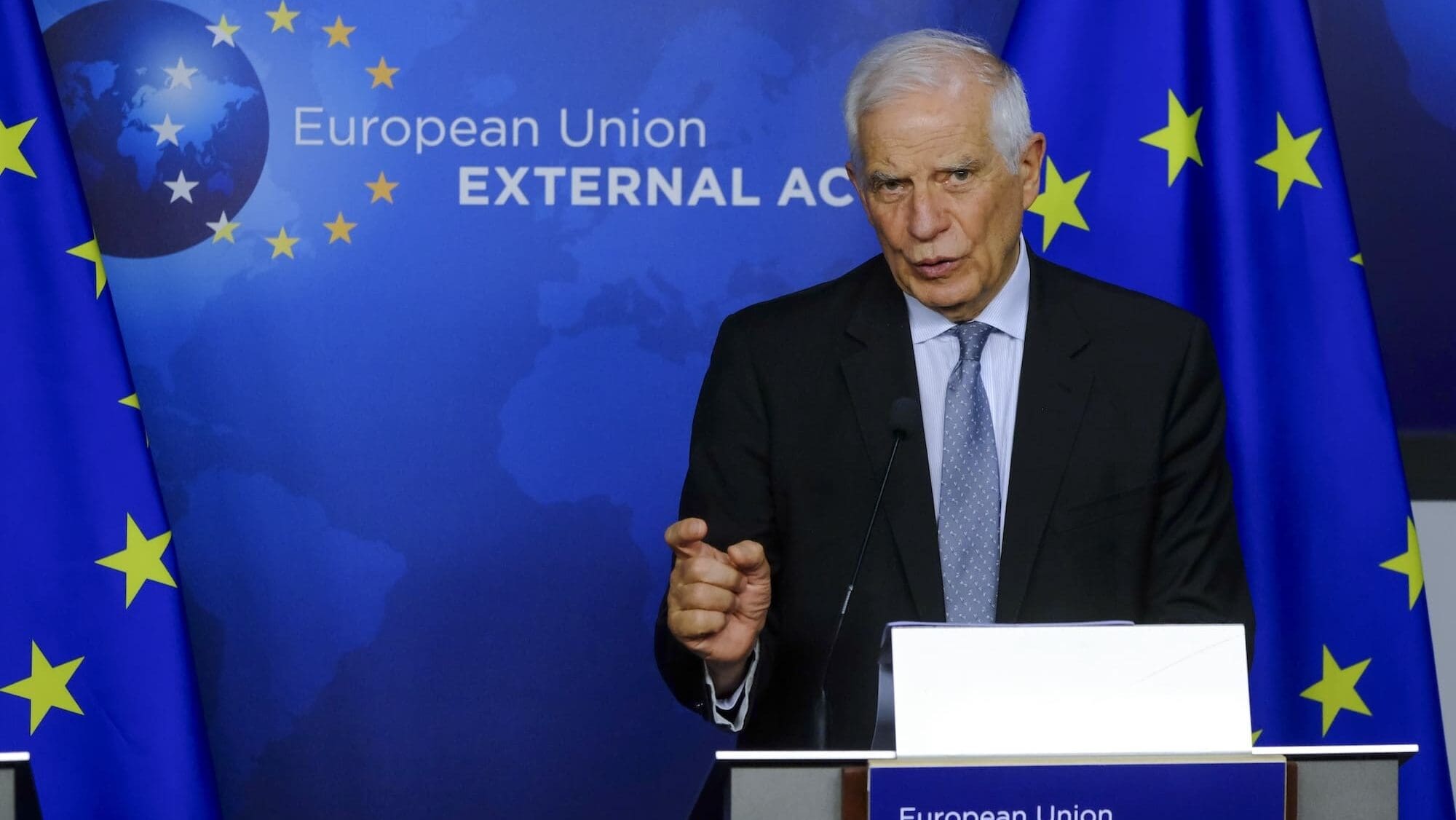
Josep Borrell, EU High Representative for Foreign Affairs.
Photo: © European Union
We are only two weeks into the EU Council’s Hungarian presidency, held between July and December, but Brussels is already on the offensive, trying to undermine Budapest’s work simply because its conservative government has a different approach on certain policies. Backed by several large member states, Josep Borrell, the EU’s High Representative for Foreign Affairs is practically forcing every member state to boycott one of the most important meetings organized by Hungary.
One of the biggest events planned by the Hungarian presidency is a foreign affairs summit in Budapest on August 28-29th, involving the EU’s 27 foreign ministers, to discuss the main geopolitical challenges facing the bloc—including, of course, the war in Ukraine.
However, after Hungarian Prime Minister Viktor Orbán’s series of bilateral meetings with world leaders on both sides of the conflict—including Zelensky, Putin, Xi, Erdogan, and Trump—the outraged Eurocrats in Brussels immediately began planning their revenge.
Despite Orbán making it clear that he did not engage in any talks on behalf of the other member states and merely tried to facilitate a constructive dialogue to help both parties reach an agreement, Brussels has been accusing him of appropriating the EU agenda and trying to appease the aggressor.
Therefore, Borrell is planning to summon the bloc’s foreign ministers for a ‘formal’ meeting at the planned time of the summit, effectively forcing every member state to boycott the parallel event in Budapest, regardless of whether they wanted to attend in the first place.
Normally, ministerial meetings (both formal ones in Brussels and informal ones in the presidency’s home country) are organized and chaired by the rotating presidency in all policy areas—except foreign affairs. That falls under the High Representative alone, which means Budapest has no say on when he summons the ministers.
“If there’s a formal foreign affairs council, organized by the high representative the same day, the ministers won’t be able to go to Budapest,” said one unnamed diplomat who laid out the clever albeit childish strategy to Politico. Another co-conspirator added that they hope to “send a clear signal that Hungary does not speak for the EU.”
EU diplomats have been discussing ways to neutralize the Hungarian presidency over the course of the past two weeks as well, with over two-thirds of member states boycotting the first informal ministerial meeting in Budapest by sending lower-level officials in protest. Seven member states, however, did not participate in the clearly coordinated effort to discredit Hungary, but they won’t be given a choice in August with Borrell’s new plot.
The exact details of Borrell’s planned ‘counter-meeting’ are expected to be unveiled by the high representative’s team on Wednesday and officially discussed among the EU’s 27 permanent representatives. The majority will likely approve it, as sources say that the governments of Germany and France are among those involved in the planning already.
It is clear that the mainstream EU elite is unwilling to let Budapest use its presidency to further promote its pro-ceasefire approach to the war, despite the fact that it is also the most popular position among Europeans in most EU member states. Brussels, in contrast, does not want to hear about any negotiations between Kyiv and Moscow, and would instead continue Ukraine’s financial and military support indefinitely—for a decade and beyond, if needed.
Hungary, however, continues to argue for peace regardless of these attacks, urging other Western nations to change their stance to end the war sooner. Budapest has previously identified the U.S., the EU, and China as three key global players who can be crucial for pressuring Moscow and Kyiv to begin negotiations and therefore avoid any possible future escalation as well as further unnecessary bloodshed and economic damage.
“At least two, but ideally all three, need to adopt a pro-ceasefire stance,” Hungarian Foreign Minister Péter Szijjártó explained, referring to Orbán’s recent trips, adding that he was hoping for a change in Washington if President Trump is elected again this November.
“Negotiation and reopening diplomatic channels offer a much better chance for peace than weapon deliveries and sanctions,” Szijjártó stated. “The solution is not on the battlefield but at the negotiating table.”
📞 FM Péter Szijjártó emphasized the importance of dialogue for peace, stating, "Negotiation and reopening diplomatic channels offer a much better chance for peace than weapon deliveries and sanctions." He criticized the current European and American strategies for failing to… pic.twitter.com/HXSDi5HGNG
— Zoltan Kovacs (@zoltanspox) July 14, 2024
